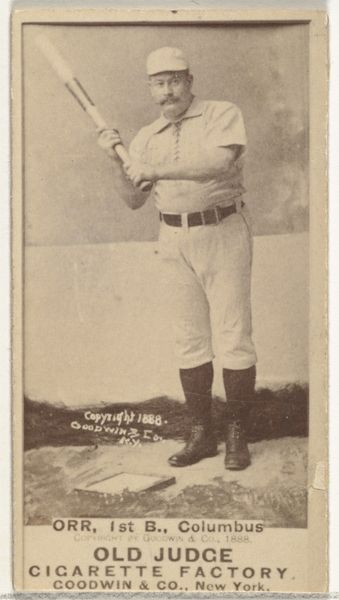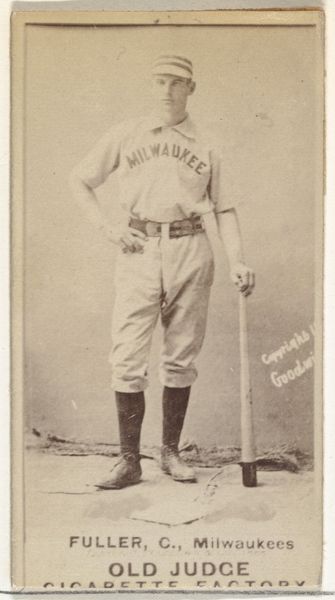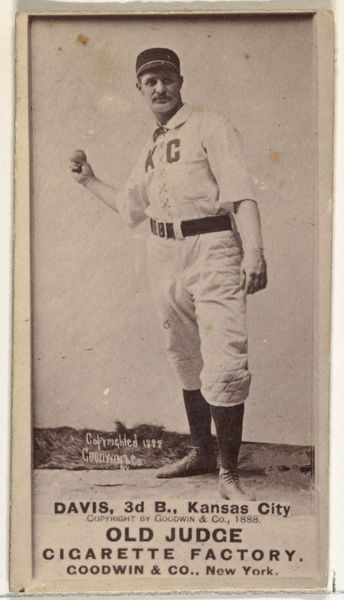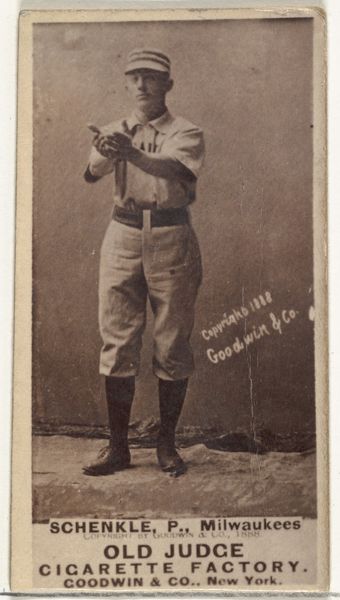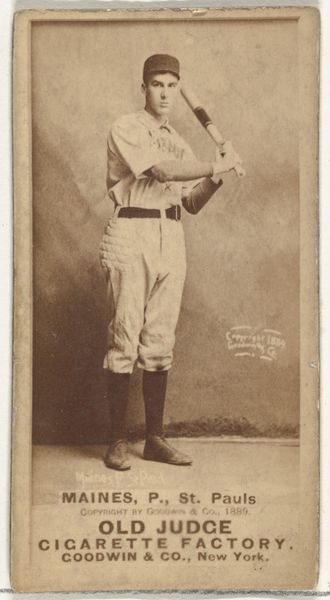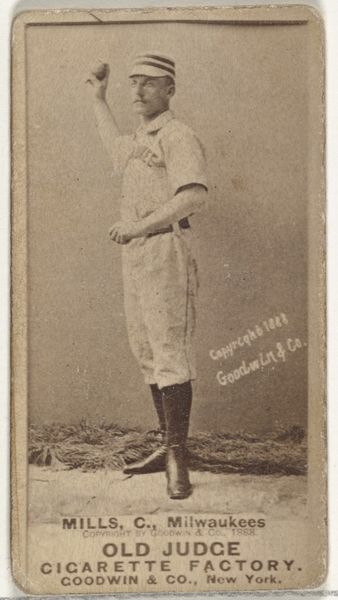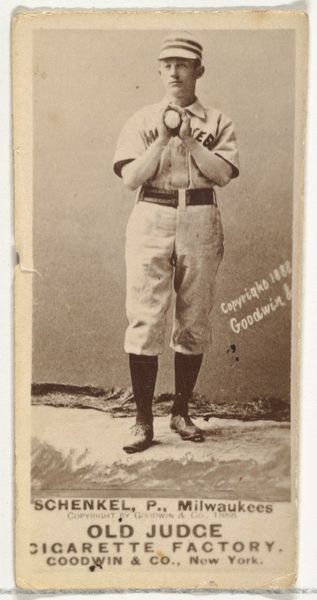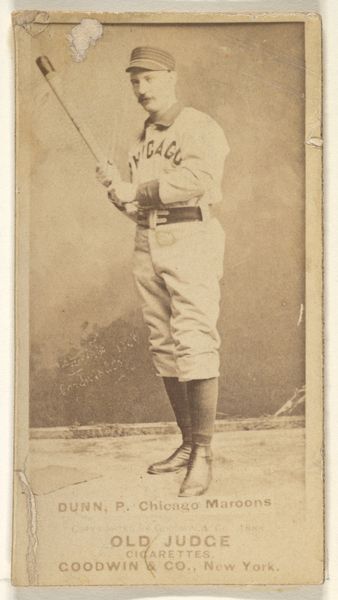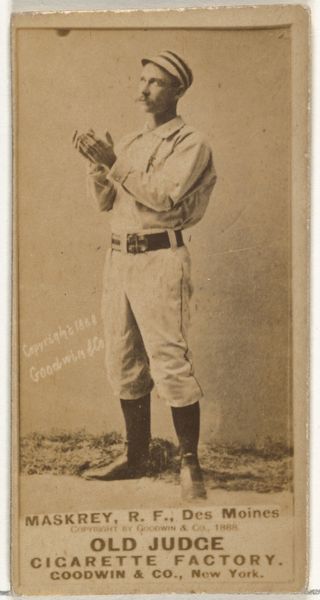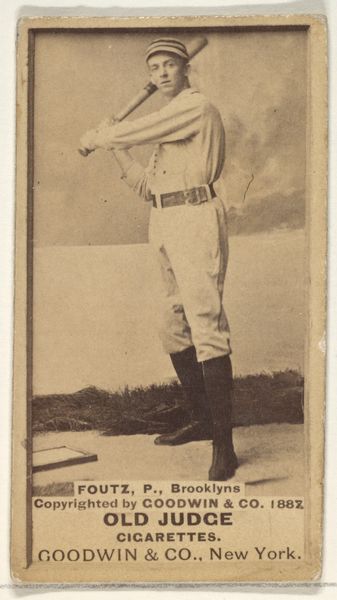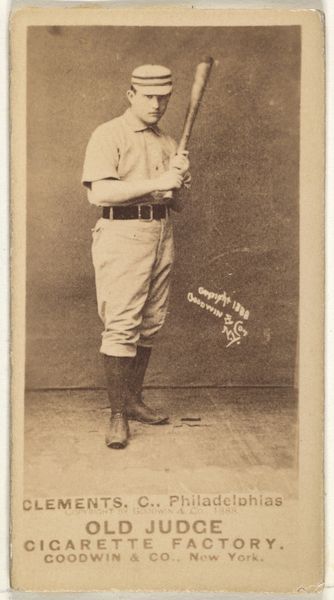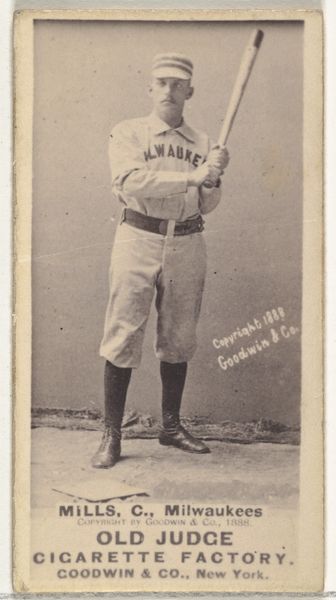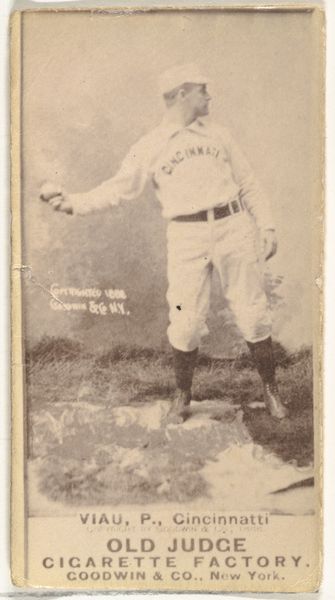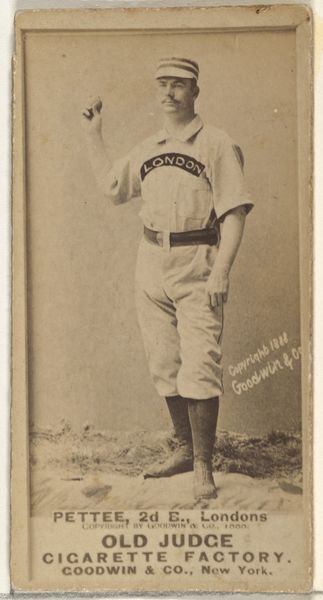
William E. "Will" Fuller, Catcher, Milwaukee, from the Old Judge series (N172) for Old Judge Cigarettes 1888
0:00
0:00
print, photography
#
portrait
# print
#
baseball
#
photography
#
men
#
genre-painting
#
athlete
#
realism
Dimensions: sheet: 2 11/16 x 1 3/8 in. (6.9 x 3.5 cm)
Copyright: Public Domain
Editor: So, here we have "William E. 'Will' Fuller, Catcher, Milwaukee," from 1888. It's a photograph, originally part of a cigarette card series, and what strikes me is how posed and almost formal it looks, even though it's of a baseball player. What do you see in this piece, especially considering the context of its creation? Curator: It's fascinating how this seemingly straightforward portrait encapsulates so much about the late 19th century. Consider how burgeoning commercialism intersected with leisure and emerging celebrity culture. This image, produced by Goodwin & Company, wasn't just about baseball; it was about marketing, creating desires, and reinforcing ideals of masculinity. Editor: Masculinity? How so? Curator: Look at the composition: Fuller’s upright posture, the positioning of the bat, his focused gaze. These are all carefully constructed visual cues suggesting strength, discipline, and the ideal of the respectable athlete. Moreover, it was part of a wider phenomenon of objectifying athletes, making them consumable commodities in a way that mirrors the experience of marginalized groups. Editor: That's an interesting connection I hadn’t considered. How the consumption of the athlete mirrors the objectification of… Curator: Precisely. Think about how tobacco cards like these often circulated alongside overtly racist imagery. They contributed to a visual culture that normalized the reduction of people—whether athletes or marginalized communities—into easily digestible images for consumption and profit. Doesn’t it raise questions about who gets to be seen as a ‘hero’ and at what cost? Editor: It does. It completely reframes my initial impression of just a "formal portrait". It’s powerful to consider its place within a broader social landscape of commerce, representation, and power. Curator: Exactly. By engaging with these historical threads, we see the seemingly simple baseball card as a site of complex cultural narratives, reflecting broader societal values and biases.
Comments
No comments
Be the first to comment and join the conversation on the ultimate creative platform.
